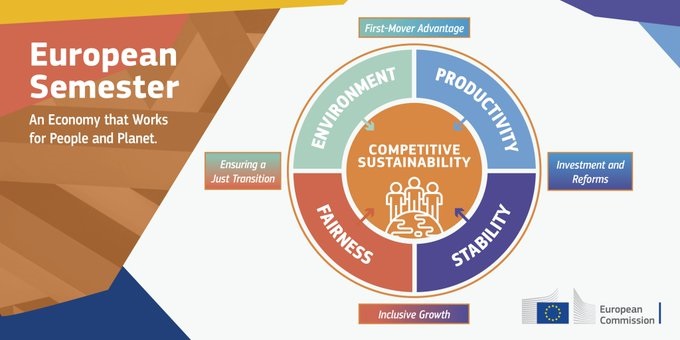European Semester: European Commission releases Spring Package 2020
What’s in it for Europe’s Roma?
On 20 May 2020, the European Commission published the so-called Spring
Package, comprising the 28 Country-Specific Recommendations 2020 (including the United Kingdom), and the accompanying Communication on Country-Specific Recommendations, in the framework of the 2020 European Semester. Together with its national members, ERGO Network has reviewed the Package, to see to which extent it explicitly mentions Roma rights and inclusion, as well as other key issues, such as ethnic minorities, discrimination, racism, and the role of civil dialogue.
Overall, while our members welcome references to Roma communities in the Communication and in some countries, they lament that most documents don’t explicitly mention them, where the Roma are present in all Member States except Malta, and experience rates of poverty and social exclusion of over 80% in all of them except the Czech Republic. This situation was exacerbated by the current public health, social, and economic crisis and associated containment measures, as highlighted also by the Package, hence it would have warranted more attention paid to one of Europe’s most left-behind communities. For the CSRs that do mention the Roma, our members agree with the challenges identified for their countries, however they would have liked to see a more comprehensive, integrated approach across the four pillars of the National Roma Integration Strategies, with notably housing being conspicuously missing from the analysis. This is particularly important in the context of the upcoming renewal of the EU Strategic Framework for Roma Inclusion, scheduled for later this year.
While the recurrent focus on mitigating the consequences for vulnerable groups is very positive, it is our members’ experience that, unless the Roma are explicitly named as key target beneficiaries of support measures, mainstream initiatives and dedicated national and EU funds end up not reaching them. Europe’s Roma must be specifically prioritised in the EU’s Recovery Package and associated funds, if the EU is serious about delivering on its commitments for Roma inclusion. Our members equally express disappointment that issues of discrimination and antigypsyism are not present in the Package, as these have increased in recent years, and even more so during the pandemic. Finally, they deplore the lack of recognition and support given to civil society organisations in the documents, given that most of them were not only on the frontlines during the pandemic, providing essential support to communities in need, but they equally possess the knowledge, expertise, and direct links to beneficiaries which are needed to inform the design of public policies and ensure both ownership and effectiveness of interventions.
See below the Key Findings of the analysis, and access the full report here.
Key Findings
- The Communication accompanying the Country-Specific Recommendations highlights the Roma as one of the most affected groups by poverty, inequality, and social exclusion.
- In contrast, for the first time since 2012, not a single Country-Specific Recommendation 2020 mentions the Roma, while there were 4 in 2019 (Bulgaria, Hungary, Romania, and Slovakia).
- The Roma are only mentioned in the Preamble for 4 Member States (Bulgaria, Hungary, Romania, Slovakia), the same ones as the 2019 Preambles, minus the Czech Republic.
- Ethnic minorities, discrimination, and racism are completely absent from all 28 documents, while only the blanket, vague term of “vulnerable groups” is typically used.
- Civil society is only mentioned in 4 Preambles (Finland, Hungary, Portugal, Slovenia), while in contrast social partners are referred to in 3 CSRs and 16 Preambles.
For more information about ERGO Network’s work on EU social inclusion and employment policy (European Semester, Europe 2020, European Pillar of Social Rights, Sustainable Development Goals etc), please contact Senior Policy Adviser Amana Ferro.





